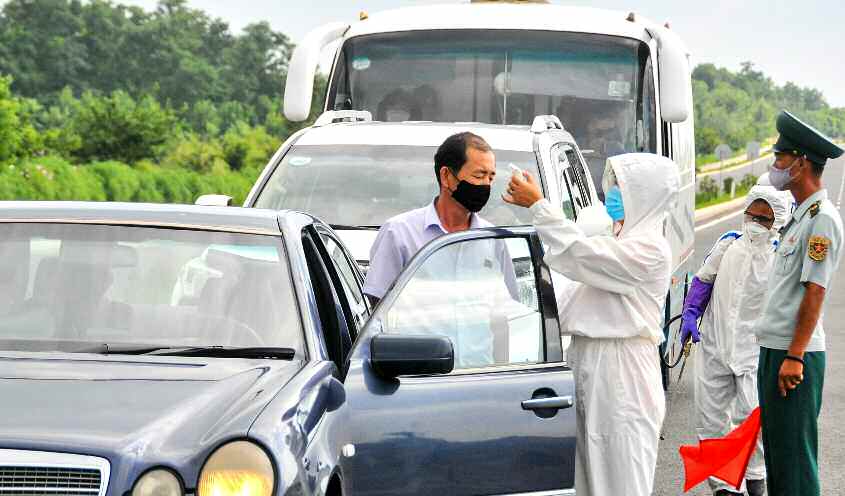North Korea continues to claim to have had no confirmed cases of COVID-19. However, there are currently over 100,000 North Koreans isolated in state facilities with high fever, breathing problems and other symptoms of COVID-19.
According to a high-ranking Daily NK source in North Korea on Thursday, around 104,000 suspected cases of COVID-19 were in isolation at state facilities as of early November. These people have been housed in facilities throughout the country, including in South Pyongan Province, the two Hwanghae provinces, North Hamgyong Province, Yanggang Province, Chagang Province, and Nampo.
The Central Emergency Anti-epidemic Headquarters receives weekly statistical reports on the number of admissions, discharges and deaths from the facilities. The headquarters reports these statistics to the leadership on a weekly and quarterly basis.
Daily NK understands that there were about 81,000 people isolated in state-designated facilities with COVID-19 symptoms as of Nov. 1 of last year.
This means at least 185,000 civilians with COVID-19 symptoms have been isolated in state facilities since North Korea closed its border last year. Given that North Korea operates separate facilities for military personnel and high-ranking cadres, the actual number of quarantined individuals is likely higher.
North Korea places people in home quarantine if they display symptoms such as a fever of 37.5 degrees or higher, cough or respiratory distress, and observes them for seven days. If the symptoms persist after seven days, the patients are designated “suspected cases” of COVID-19.
If the patient’s symptoms do not improve during the home quarantine period, the authorities force them into state quarantine facilities. Health authorities provide a “suspected case” diagnosis document to the family, who must submit the document to the patient’s place of employment.

As late as last year, North Koreans could avoid being sent to facilities if they paid a bribe. However, since the Eighth Party Congress in January of this year, the mood has shifted so that suspected cases must unconditionally enter isolation facilities, regardless of their position or rank.
The problem is that patients in quarantine facilities often worsen and die due to the lack of proper treatment and poor conditions in the facilities.
The facilities are unable to properly serve the patients as they lack adequate winter heating. Facility administrators provide people with thin blankets, but few use them because of lice.
Most patients use blankets sent by their families or purchased separately from doctors or facility managers, but even this is insufficient in winter when it is so cold that patients must put vinyl coverings over their blankets to sleep.
The meals patients receive twice a day — in the morning and afternoon — are reportedly quite meager as well.
They regularly receive rice mixed with corn and salted soup with cabbage. But when the power goes out, they cannot receive even this, getting undercooked rice and a cold soup with salted cabbage instead. Nevertheless, the source said the quarantine facilities take KPW 500 to KPW 1,200 in meal fees from patients when they are discharged.
Patients in the facilities cannot receive visits; however, if families send money, facility administrators can and will provide the patients with outside food.
Meanwhile, according to the World Health Organization South-East Asia Region’s 44th weekly COVID-19 situation report, North Korea’s Ministry of Public Health reported that 44,830 people had been tested for COVID-19 as of Nov. 4, with a total of 89,386 samples collected. All tested “negative,” however.
Nevertheless, North Korea said 109 of the people who received COVID-19 tests between Oct. 29 and Nov. 4 were suffering from “influenza-like illness or severe acute respiratory infections.”
Please direct any comments or questions about this article to dailynkenglish@uni-media.net.

















